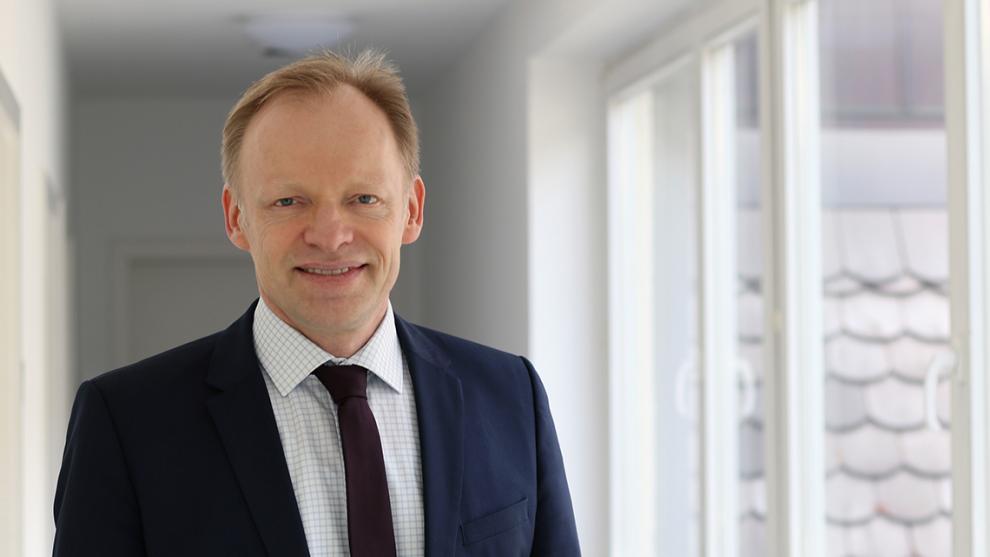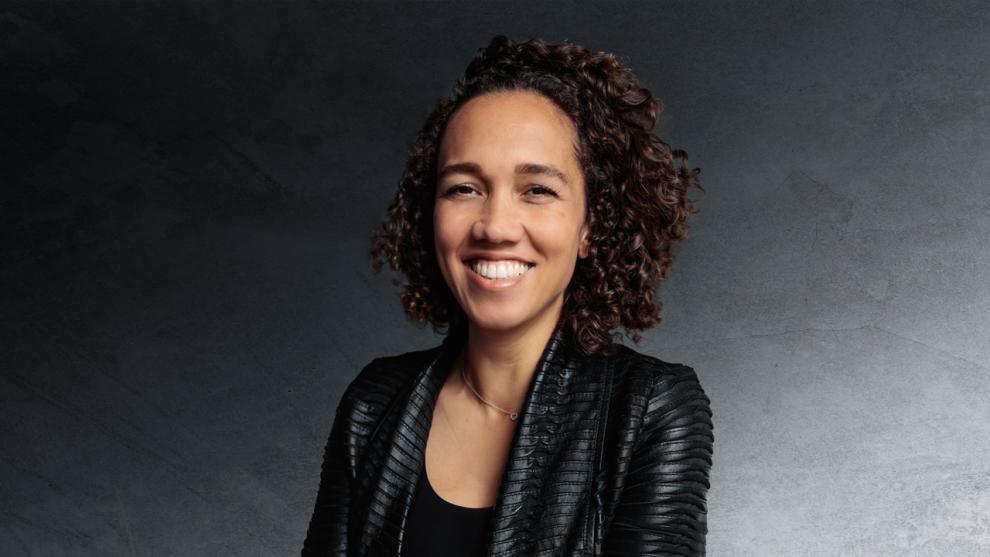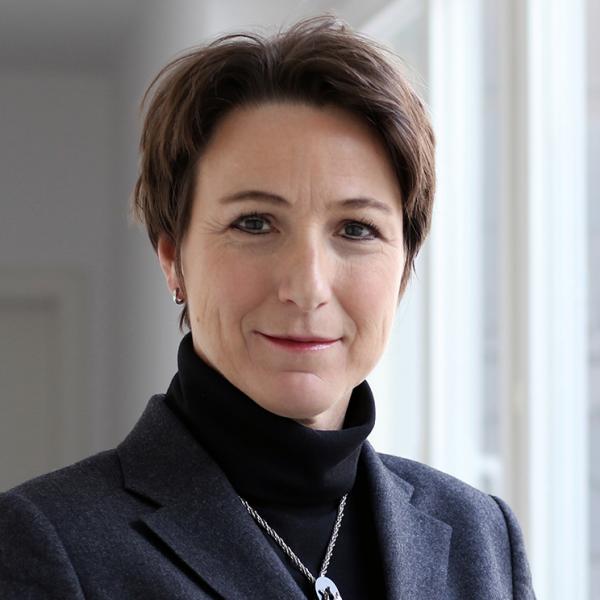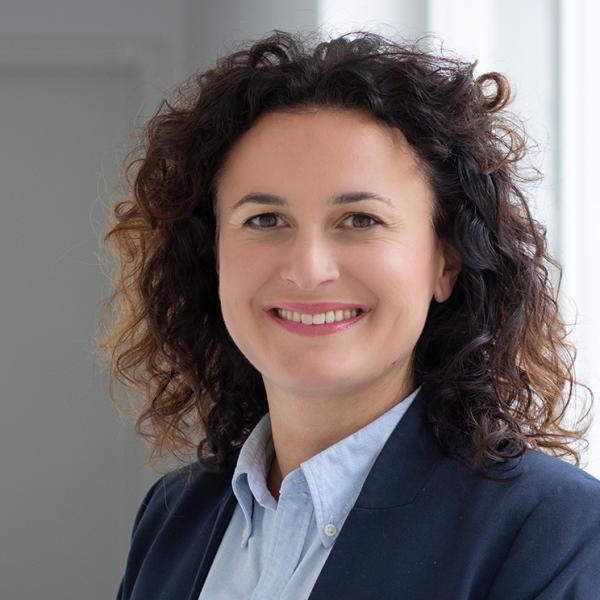ifo Media Center
The ifo Institute invites you to participate in the discussion of interesting economic topics via the Internet. In our ifo Media Center a whole series of remarkable events are available and can be viewed in full length. We also record selected speeches and presentations given by employees or at events and make them available in our Media Center.

ifo Price Expectations Rise Slightly
The ifo price expectations rose a little to 16.2 points in May, up from 15.2 points* in April. In manufacturing and wholesale in particular, slightly more companies plan to raise their prices than in the previous month. In consumer-related industries, by contrast, price expectations declined. “This means inflation is likely to fall again in the coming months. In August, it should drop below 2 percent for the first time since March 2021,” says Timo Wollmershäuser, Head of Forecasts at ifo.
ifo Business Climate Eastern Germany Rises Further (May 2024)
The ifo Business Climate Index for Eastern Germany rose slightly in May. The barometer of business sentiment for the regional economy in eastern Germany climbed to 92.8 points, up from 92.2 points in April. The eastern German companies surveyed provided assessments of their business situation that were somewhat better than the previous month, and they raised their business expectations slightly. The upward trend continues.
ifo Researcher Potrafke Critical of Germany’s Pension Package
ifo researcher Niklas Potrafke has criticized the pension package recently adopted by the German government. “Freezing the pension level at 48 percent and suspending the sustainability factor completely ignores the realities in Germany. Demographic change demands a different pension policy. The introduction of the sustainability factor 20 years ago marked a cautious start to taking account of demographic trends in the pension system. In Germany, fewer and fewer young people have to look after an increasing number of older people. With the population structure developing in this way, pensions will have to rise much more slowly,” Potrafke said in Munich on Wednesday.
ifo Employment Barometer Rises (May 2024)
The willingness among companies in Germany to hire new staff has increased slightly. The ifo Employment Barometer rose to 96.3 points in May, up from 96.0 points in April. “Demand for workers remains rather weak,” says Klaus Wohlrabe, Head of Surveys at ifo. “Those companies that are experiencing a lack of orders are also thinking about cutting jobs.”
Institut ifo : hausse des prévisions en matière d’exportations
Le moral des exportateurs allemands s’est amélioré. Les prévisions communiquées à l’Institut ifo en matière d’exportations ont progressé, passant de – 1,5 point en avril à + 0,3 point en mai. « Les réponses positives et négatives s’équilibrent presque parfaitement », indique Klaus Wohlrabe, directeur des enquêtes de l’Institut ifo. « Dans l’ensemble, la dynamique des exportations reste cependant poussive. »
Export Expectations Rise (May 2024)
Sentiment in the German export industry has turned brighter. The ifo Export Expectations rose from -1.5 in April to +0.3 points in May. “Positive and negative responses are in nearly perfect balance,” says Klaus Wohlrabe, Head of Surveys at ifo. “The export economy is not yet developing any great momentum overall.”
ifo Business Climate Index remains unchanged (May 2024)
Sentiment among companies in Germany remains unchanged. The ifo Business Climate Index in May stayed at 89.3 points. Companies were less satisfied with their current business situation, but expectations brightened. The manufacturing, trade, and construction sectors are recovering, although the service sector took a slight hit. Germany’s economy is working its way out of the crisis step by step.
Polling Place Reassignments Reduce Voter Turnout by 0.4 Percentage Points
Assigning voters to new polling place led to a drop in voter turnout of 0.4 percentage points, finds the ifo Institute in a new analysis of elections in Munich. “In the past, Munich has repeatedly reassigned polling stations to simplify the voting process for citizens – by providing barrier-free polling places or adjusting voting precincts. However, this led to a temporary decline in voter turnout in the affected precincts and a shift from voting in person to voting by mail,” says ifo researcher Jean-Victor Alipour. The decline in voter turnout is driven by inattentive citizens who noticed the reassignment too late to switch to mail-in voting.
EU Single Market for Services Could Increase Economic Output by 2.3%
A sweeping removal of barriers in the EU single market for services would increase gross value added by 2.3% or EUR 353 billion permanently (in 2023 prices). This has been shown in an analysis conducted by the ifo Institute and EconPol Europe on behalf of the Chamber of Industry and Commerce for Munich and Upper Bavaria. The calculations were done for a medium- to long-term time horizon of between ten and twelve years. “Although the service sector has played a key role in economic growth in recent decades, EU member states still have to navigate a patchwork of 27 different sets of regulations. As a result, they are missing out on enormous growth potential,” says Florian Dorn, coauthor of the study.
German Manufacturing Sees Threat to Its Competitiveness
The competitiveness of German manufacturing within the EU and on global markets has been deteriorating for two years. This is based on analyses of the monthly ifo survey. Companies have reported falling behind in terms of competitiveness within the EU since the third quarter of 2022. The situation is similar on the global markets (outside the EU), where this trend had begun in the first quarter of 2022. “It’s becoming more difficult for German manufacturers to compete,” says Klaus Wohlrabe, Head of Surveys at ifo.
Work Visa Agreements between EU and Third Countries Could Reduce Asylum Applications
The ifo Institute proposes work visa agreements between the EU and safe third countries as a way to reduce the number of asylum applications and irregular immigration. “This would enable legal and controlled immigration. One reason the European asylum system is overloaded is the lack of opportunities to enter the EU legally. Especially for low-skilled people, the chances of obtaining work visas in Europe are vanishingly small,” says Panu Poutvaara, Director of the ifo Center for International Institutional Comparisons and Migration Research.
Business Climate of the Self-Employed in Germany improved somewhat
The business climate for solo self-employed and microenterprises in Germany improved somewhat in April. The “Jimdo-ifo Business Climate Index for the Self-Employed” rose to -13.8 points*, up from -15.6 points* in March. Dissatisfaction with current business has decreased slightly, as has skepticism regarding expectations for the next six months. The signal coming from service providers is particularly positive. Here, order backlogs are slowly stabilizing. “The self-employed are hoping that the order situation will ease,” ifo Expert Katrin Demmelhuber says.
European Cooperation Can Reduce Costs of Climate Action by EUR 248 Billion by 2050
Joint energy and climate action policy in the EU could save European countries EUR 248 billion between 2024 and 2050, with Germany alone saving EUR 66 billion. This is according to a study conducted by the ifo Institute in Munich on behalf of the Chamber of Commerce and Industry for Munich and Upper Bavaria to calculate the cost of making Europe climate neutral by 2050. “Having every country in Europe pursue energy climate action policy alone leads to huge additional costs. Joint climate action is always better than national climate action,” says Mathias Mier, ifo researcher and author of the study.
Business Climate in Germany’s Chemical Industry Improved
The business climate in Germany’s chemical industry improved in April. The index rose to -6.0 points, up from -10.1 points* in March. Companies assessed their current business situation at -16.0 points, which is slightly better than in March (-18 points*). Business expectations have brightened considerably – the indicator rose to +4.6 points in April, up from -1.9 points* in March. “The chemical industry is somewhat more confident about the coming months,” says industry expert Anna Wolf from the ifo Institute.
Educational Opportunities Differ Markedly between Germany’s Federal States
The educational opportunities of children and young people in Germany differ significantly between the federal states, finds a new ifo study. An unfavorable family background has the least negative impact on children in Berlin and Brandenburg. Here, it is about half as likely (Berlin: 53.8 percent; Brandenburg: 52.8 percent) that a child from a disadvantaged background will attend a university-track high school – or Gymnasium – as a child from a comfortable background. Nationwide, the figure is 44.6 percent. At the lower end are Saxony with 40.1 percent and Bavaria with 38.1 percent. A rate of 100 percent would imply equal opportunities. “When it comes to children’s educational opportunities in Germany, the decisive factors are their parents’ education and income. But just how decisive varies from state to state,” says Ludger Wößmann, Director of the ifo Center for the Economics of Education.
Half of Germany’s Residential Construction Companies Are Short on Orders
Residential construction in Germany is experiencing an order shortage. More than half the companies (55.2%) in this industry reported a lack of orders in April. In March, the figure was 56.2%. “Housebuilders are looking for signs of hope,” says Klaus Wohlrabe, Head of Surveys at ifo, “but there’s no end to the crisis in sight.”
Lack of Orders Slows Down the German Economy
The order shortage in Germany has worsened and is an obstacle to the economy. In April, 39.5% of manufacturing companies reported a lack of orders, up from 36.9% in January. In the service sector, the proportion rose from 32.1% to 32.4%. “The lack of orders is hampering economic development in Germany,” says Klaus Wohlrabe, Head of Surveys at ifo. “Almost all industries are affected.”
Covid-19 Economic Assistance in Bavaria Reached All Affected Industrie
In Bavaria, Covid-19 bridging aid was received mainly by the many smaller companies with fewer than 50 employees and in those industries particularly affected by the pandemic. This is the finding of the ifo Institute’s initial evaluation of this aid as part of a study commissioned by the Chamber of Commerce and Industry (IHK) for Munich and Upper Bavaria. The study assessed seven funding programs with payouts totaling EUR 11.2 billion resulting from more than 300,000 applications. Most of the money went to eateries and hotels, which were among the most affected by pandemic-related closures. These businesses received 40 percent of the total funding, or EUR 4.7 billion. Next came retailers with EUR 1.6 billion and the arts and culture industry with a total of EUR 1.3 billion.
Negative Effects in Northern and Eastern Europe Due to War in Ukraine
Economic experts in Northern and Eastern Europe are seeing the negative impact of the war in Ukraine on the political and economic situation in their countries particularly clearly. This is a finding of the Economic Experts Survey (EES) conducted by the ifo Institute and the Swiss Economic Policy Institute (IWP). “Since the outbreak of the war, respondents who mention the keywords ‘Russia,’ ‘Ukraine,’ ‘NATO’ or ‘War’ in their answers have a much more negative view of their country’s political and economic situation than the others,” says ifo researcher Tuuli Tähtinen.
Les économistes se montrent critiques à l’égard de l’Allemagne
Les professeurs d’économie attribuent à l’Allemagne une note de seulement 3,4 (sur une échelle de 1 à 6, 1 étant la meilleure note) dans une étude comparant les différentes économies du monde. C’est ce qui ressort du dernier panel d’économistes de l’Institut ifo. 38 % des personnes interrogées ont attribué la note 3, 20 % la note 2, 17 % la note 4 et 20% la note 5. « Ce mauvais résultat est inquiétant pour une nation industrielle comme l’Allemagne », estime Niklas Potrafke, directeur du Centre de recherches sur les finances publiques et l’économique politique de l’Institut ifo.




